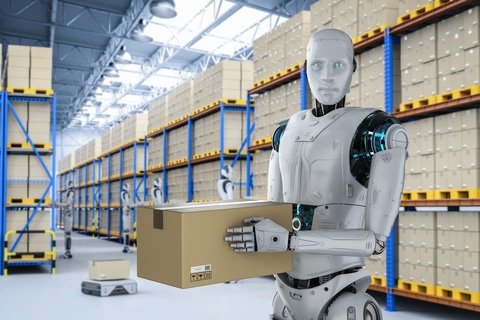Over the last few years, labor difficulties in the logistics sector have grown from awful to abominable.
Tight labor markets in isolated areas like Indianapolis and Memphis have hit Tipping Points across all nodes of our supply chains. This has created a Paradigm Shift where it is difficult to find enough workers to sort, pick, pack and ship product from ports to railroads to distribution centers to the end consumer.
The Disruptions continue and will not stop. The Great Resignation; strikes and strike threats from the ports and transport services (Germany, Great Britain, the U.S. West Coast), railroads (the United States), delivery services (UPS potentially in 2023); and more.
Between labor disputes and the inability to find employees willing to work in warehousing and trucking, it’s going to be increasingly difficult to avoid getting run over in the next few years.
Automation, Robotics and AI Can Help
Foresight tells us that we need alternative solutions; Insight tells us that those solutions involve automation, robotics and artificial intelligence.
From my decades of experience in designing successful logistics solutions, here are my 5 top things to consider when looking to reduce labor costs within your supply chain:
- Ensure you have the right management and leadership skills. Woith constant disruption, labor challenges and remote/hybrid work, the right leadership and coaching can keep employees engaged and effective.
- Utilize staffing agencies more effectively by hiring lumpers for unloading, projects, seasonal peaks, etc.
- Implement technology such as artificial intelligence and machine learning. These can drive efficiencies within the four walls of your distribution and fulfillment centers.
- Add best in class visibility technology to your supply chain. You need to know where your goods are at all times, allowing for more effective planning.
- Seek out the right logistics partners to utilize best practices, technologies, know-how and add capacity where needed.
Chief Executive Officer Mike Royster has over 30 years’ experience managing Logistics and Distribution on a global basis for companies like Ingersoll Rand/Trane, Eaton Corporation, and XPO Logistics. Mike now leads Tompkins Ventures’ global logistics and consulting practices. Reach him at mroyster@tompkinsventures.com.

